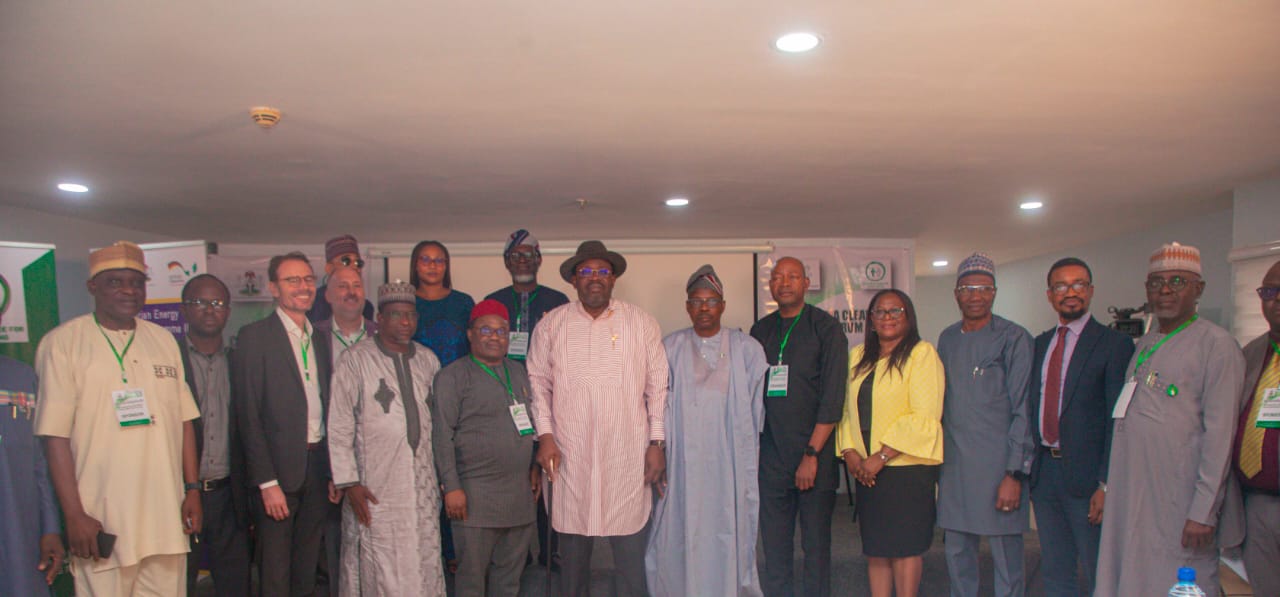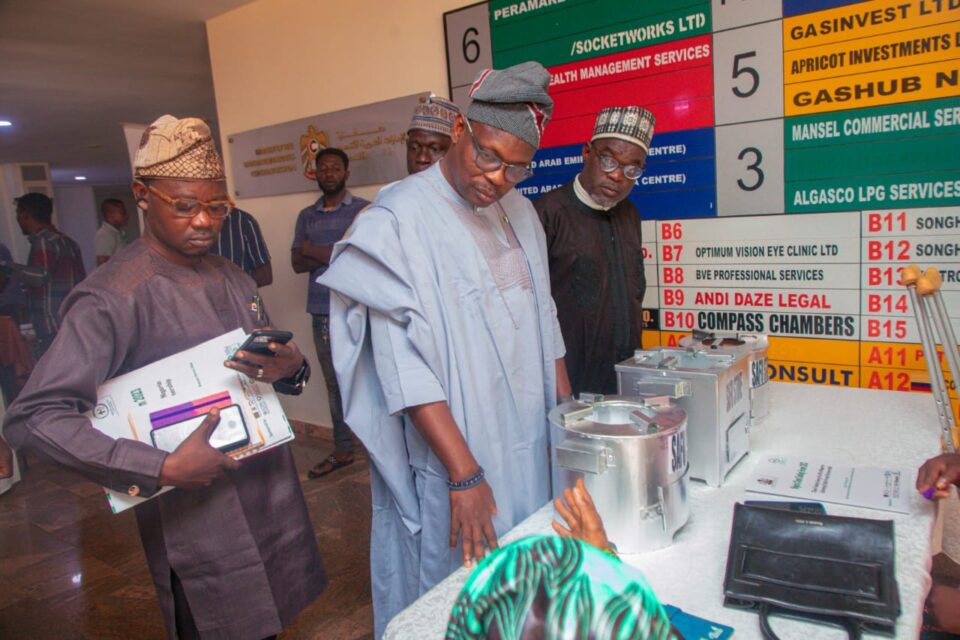By Chuks Oyema-Aziken
The Federal Government has called for a joint collaborative effort in ensuring that Nigerian households convert from the use of inefficient cooking fuels such as fuelwood, charcoal and kerosene to LPG and other efficient cooking fuels.
Minister of State for Environment, Dr Iziaq Kunle Salako made the call at the 2023 Nigeria Clean Cooking Forum in Abuja on Thursday.
The two-day Forum with the theme: “Clean Cooking Energy for All in Nigeria- Advancing Public Private Partnership” brought together key policymakers, investors, private sector leaders, research institutions, civil society stakeholders and international partners to support an enabling environment to expand access to clean cooking, strengthen supply and enhance demand.

According o the Minister, “In Nigeria, lack of access to clean cooking has resulted in high mortality rate among women and children. According to WHO, the traditional cooking method is claiming about 100,000 lives annually and after Malaria and HIV/AIDS it is reported to be the third highest killer of women and children in Nigeria.
“Statistic has it that emissions from the domestic cooking alone represent about 55 million metric tonnes CO2e and about 700,000 metric tonnes of PM2.5 emission which is a major source of Short-Lived Climate Pollutants (SLCPs).
“Today, we face a moment of truth as over 75% of the population still relies on solid fuel for their household cooking and heating needs, while only one in every ten households in Nigeria cook with clean cooking energy sources and technologies, such as electricity, LPG or improved biomass stoves.
“Emissions from energy sector account for about 60 per cent of total greenhouse gas emissions according to Nigeria’s Revised NDC 2021. Nigeria’s domestic sector contributes over 50% of national total emissions of Green House Gases and how we produce and use energy is the main cause of the climate crisis. Therefore, we have a double imperative – to end energy poverty and to limit climate change and the answer that will fulfil both imperatives is affordable, renewable and sustainable energy for all.
He said the Federal Ministry of Environment has over the years supported the implementation of several programs on clean cooking in order to help the nation reduce its GHG emissions by distributing thousands of clean cooking stoves across the country.
“Furthermore, the Ministry during the development of an implementation plan for the Revised NDC captured emission reduction targets from the cooking energy sector. The Ministry had also inaugurated the sub-committee on clean cooking under the Inter-Ministerial committee on Climate Change (ICCC) to ensure the development of a single clean cooking policy which has been validated and awaiting Federal Executive Council (FEC) approval.
“The Ministry in 2019 also developed a National Action Plan to reduce the Short-lived Climate Pollutants (SLCPs) which have shorter live span than carbon dioxide but more potent and damaging to the human, animals and environment.
“As the country strives to meet its Nationally Determined Contributions (NDC) obligations and the commitments made for long term carbon emission reduction by 2060, it is therefore imperative to have a joint collaborative effort in ensuring that Nigerian households convert from the use of inefficient cooking fuels such as fuelwood, charcoal and kerosene to LPG and other efficient cooking fuels.
“And the veritable means of achieving this noble objective is through the Nigerian Alliance for Clean Cook.
In his welcome address, Mr. Ewah Eleri
Executive Director, International Centre for Energy, Environment and Development /Chairman, Board of Trustees, Nigerian Alliance for Clean Cooking said clean cook is a response to unhealthy fuelwood, charcoal and kerosene.
He said the current relationship between public and private partners in the clean cooking industry needs to be strengthened.
“The private sector in the clean cooking industry requires interventions to enhance value chain development, balanced product supply and demand, technology innovations and knowledge transfer for a seamless transition to carbon-neutral cooking
Nigeria is working towards fulfilling its climate promise through the revised Nationally Determined Contributions (NDC) target of achieving 48% of the population (28.8million households) using liquefied petroleum gas (LPG) and 13% (7.3million households) using improved cookstoves by 2030; and eliminating the use of kerosene lighting by 2030.
The Nigeria Clean Cooking Forum is an important, annual gathering of stakeholders working to accelerate the production, dissemination, and use of cleaner, more efficient cookstoves and fuels.



